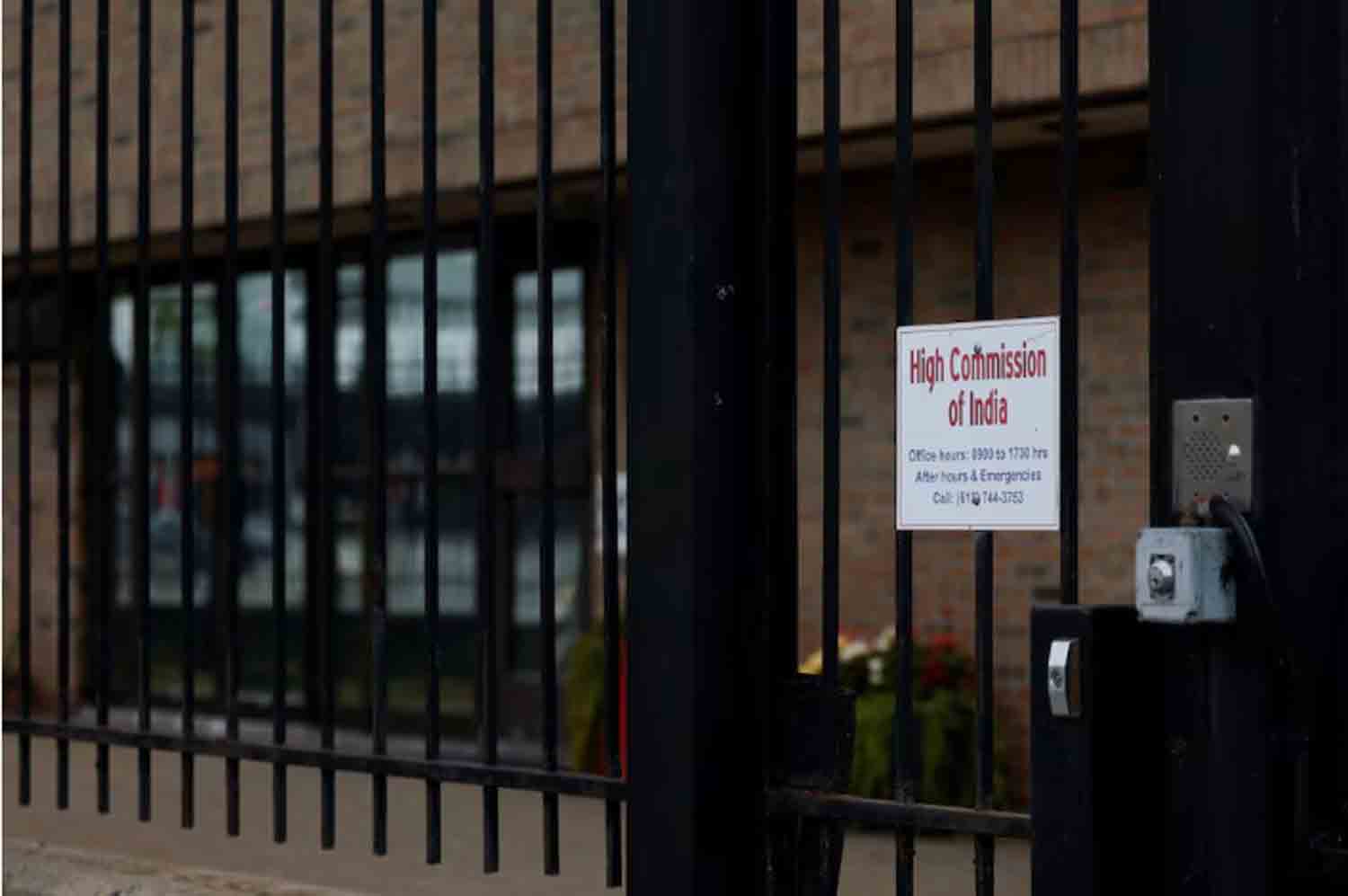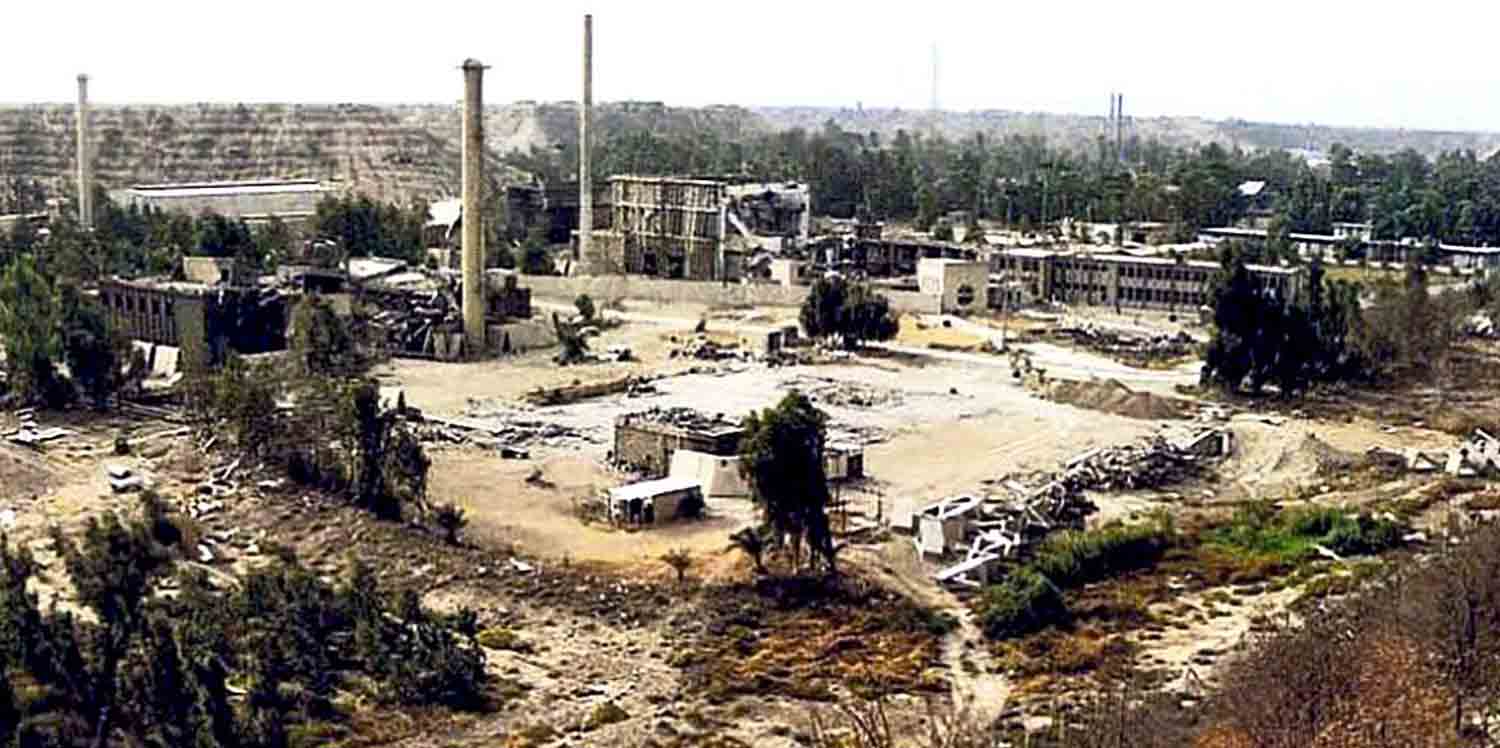A longstanding diplomatic conflict between India and Canada has resurfaced, as both nations have announced the expulsion of diplomats following allegations that Indian government agents engaged in actions jeopardizing the safety of Canadians.
The latest escalation began on Monday when India’s Ministry of External Affairs revealed it had received a “diplomatic communication” from Canada, suggesting that Indian diplomats were being regarded as “persons of interest” in an ongoing investigation in Canada.
Relations between New Delhi and Ottawa deteriorated significantly last year after the Canadian government disclosed it was probing a potential connection between Indian government agents and the assassination of Sikh separatist leader Hardeep Singh Nijjar on Canada’s west coast.
New Delhi has categorically denied any involvement in Nijjar’s death, asserting on Monday that it “strongly” dismissed Canada’s “preposterous imputations” and announced the withdrawal of its diplomats and officials from Canada.
Shortly thereafter, the Canadian government stated that federal police had found evidence indicating that Indian agents were involved in activities posing a threat to public safety in Canada, leading to the expulsion of six Indian diplomats.
The ongoing diplomatic dispute has escalated, with significant statements from both Canada and India regarding the situation. Here’s a summary of the developments and potential implications:
What has Canada stated?
- On Monday, Prime Minister Justin Trudeau announced that the Royal Canadian Mounted Police (RCMP) had discovered “clear and compelling evidence” indicating that agents of the Indian government have been involved in activities that pose a threat to public safety.
- Trudeau highlighted that these activities include covert information-gathering methods, coercive actions aimed at South Asian Canadians, and participation in numerous violent incidents, including murder. During a press conference, he emphasized the seriousness of these allegations.
- Earlier that day, the RCMP reported evidence linking Indian government agents to “serious criminal activity in Canada,” which encompasses connections to homicides, violent acts, and interference in democratic processes.
- The RCMP stated that this evidence was presented to officials from the Government of India, urging their collaboration to mitigate the violence and requesting joint efforts from law enforcement agencies to tackle these issues.
- In response, Canada’s Global Affairs department announced the expulsion of six Indian diplomats and consular officials, citing their involvement in a targeted campaign against Canadian citizens linked to the Indian government. Among those expelled was India’s high commissioner to Canada.
- Foreign Affairs Minister Melanie Joly explicitly connected the expelled officials to the case of Nijjar, stating, “The decision to expel these individuals was made with great consideration and only after the RCMP gathered ample, clear and concrete evidence which identified six individuals as persons of interest in the Nijjar case.”
What has India said?
- India’s Ministry of External Affairs has strongly dismissed the allegations made by Canada, asserting in a statement on Monday that there is a “deliberate strategy of smearing India for political gains” under the guise of an investigation. The ministry emphasized that the Canadian government has failed to provide any evidence to support its claims, despite numerous requests from India.
- Furthermore, the ministry indicated that it had summoned the Canadian charge d’affaires in India to express that the “unfounded targeting of the Indian High Commissioner and other diplomats and officials in Canada is entirely unacceptable.” It stated, “We lack confidence in the current Canadian Government’s ability to ensure the safety of our personnel. Consequently, the Government of India has opted to withdraw the High Commissioner and other affected diplomats and officials,” while also noting that New Delhi “reserves the right to take additional measures” in response.
- In a reciprocal action, the ministry declared the expulsion of six Canadian diplomats from India, including the acting high commissioner, and has given them until the end of the day on October 19 to exit the country.
How did the relationship between India and Canada deteriorate to this level?
Tensions between the two nations escalated dramatically in September 2023 when Prime Minister Trudeau revealed that Canadian authorities were probing “credible allegations of a potential link” between agents of the Indian government and the assassination of Nijjar, a Canadian citizen. Nijjar was shot dead on June 18, 2023, outside a Sikh temple in Surrey, British Columbia, where he held the position of president. He was a prominent figure in the Khalistan movement, which advocates for a separate Sikh state in India’s Punjab region.
Although Sikh separatism has largely subsided within India, the Indian government perceives it as a significant threat and has urged Western countries to take action against Khalistan movement leaders in their communities abroad. India categorically rejected the allegations of its involvement in Nijjar’s murder, labeling them as “absurd.” Additionally, it accused Nijjar of engaging in “terrorism,” a claim that his supporters vehemently denied.
Following the initial accusations from Canada, both countries recalled their diplomats, and India suspended diplomatic services for Canadians. Tensions flared again in May 2024 when Canadian police announced the arrest of three Indian nationals linked to Nijjar’s murder. The Royal Canadian Mounted Police indicated they were also “investigating if there are any ties to the government of India.” Later that month, a fourth Indian national was arrested and charged in connection with the case.
In response to these developments, New Delhi dismissed the situation in Canada, with External Affairs Minister Subrahmanyam Jaishankar asserting that Canada had a “political compulsion” to blame India.
What comes next?
The future actions of India, as indicated by its foreign ministry on Monday, remain uncertain in light of Canada’s allegations. Should India decide to respond, the nature of those actions is yet to be determined.
Stephanie Carvin, a political analyst and professor at Carleton University in Ottawa, emphasized the gravity of Canada’s recent claims, suggesting they could further strain diplomatic relations with India. She remarked that this situation places Canada in a challenging position.
“We are witnessing a global trend where nations such as the European Union, the United States, and Australia are seeking to strengthen their ties with India. This situation may alienate us from our other allies,” she stated in an interview.
Carvin also highlighted the practical implications, noting that Canada hosts a significant South Asian community, with many Indian students residing in the country. “These Indian nationals require consular services and diplomatic support here,” she pointed out.
Over the past year, Sikh Canadians have expressed concerns regarding perceived interference from the Indian state. The World Sikh Organization of Canada, a nonprofit advocating for the Sikh community, expressed support for the Canadian government’s recent announcement and called for the complete prosecution of all individuals implicated in the killing of Nijjar, including Indian diplomats.
The organization stated, “The ongoing foreign interference by the Government of India in Canada, along with its history of targeting Sikhs here, is only now gaining public attention, although it has been a reality for Sikhs for the past forty years.”
Discover more from Defence Talks | Defense News Hub, Military Updates, Security Insights
Subscribe to get the latest posts sent to your email.





